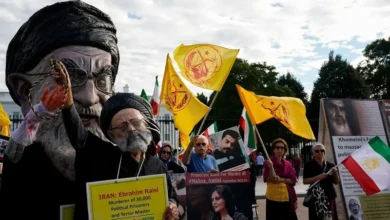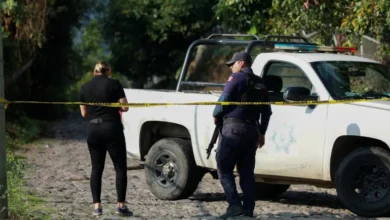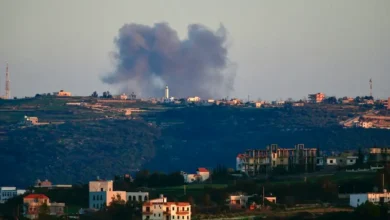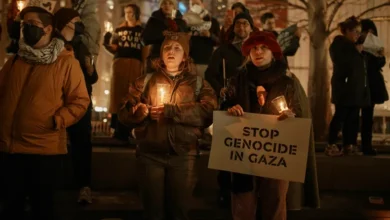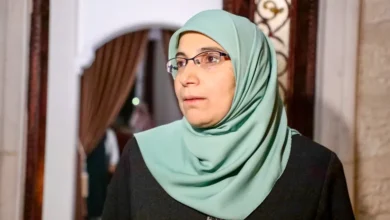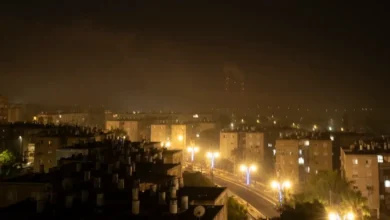‘We’re cursed’: Kashmiris under attack across India after Pahalgam killings
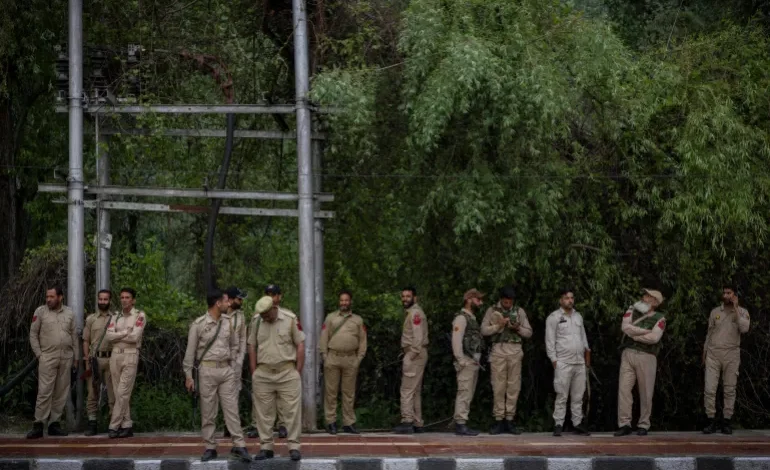
Walking through the narrow and crowded lanes of Jalandhar, a city in the northern state of Punjab, *Aasif Dar suddenly realised that “all eyes were on me”.“I felt like every single person in the crowd had vengeance in their eyes,” recalled Dar.
As Dar and a friend stopped by an ATM, two unknown persons approached them, asking about their ethnicity. They panicked and ran away. The next morning, on April 23, Dar left his house to buy milk. “Three men saw me and hurled Islamophobic slurs,” said Dar. “One of them shouted, ‘He is a Kashmiri, everything happens because of them.’”
On Tuesday, April 22, gunmen opened fire on tourists in Kashmir’s resort town of Pahalgam, killing 26 tourists and injuring a dozen others.
Yet, even as New Delhi has blamed Pakistan for the attack, which was claimed by an armed group seeking secession from India, the killings have also opened up the country’s religious and ethnic fault lines.
As Indian government forces continue to hunt for the attackers in Kashmir’s dense jungles and mountains, Kashmiris living across India, especially students, have reported heckling, harassment and threats by far-right Hindu groups – or even their classmates.From Uttarakhand, Punjab, to Uttar Pradesh, landlords are pushing Kashmiri tenants out; and shopkeepers are refusing to trade with them. Several Kashmiri students are sleeping at airports as they try to make their way home.
Someone else carried out the deadly attack. “And we are now left here to pay the price,” said Dar.‘Mistrust everywhere I look’
The disputed region of Kashmir is claimed in full, but ruled in parts, by both India and Pakistan.
New Delhi has accused Islamabad of indirect involvement in “cross-border terrorism” and the Pahalgam attack. Pakistan refutes the allegations and says it only provides moral and diplomatic support to Kashmiri nationalism. It has said that India has not provided any evidence of Pakistan’s involvement in the Pahalgam attack, which has left the nuclear-armed neighbours locked in a tense standoff: New Delhi has walked out of a water-sharing treaty; both nations are expelling each other’s citizens and are scaling back the diplomatic strengths of their missions in each other’s capitals.But inside India, Kashmiris are bearing the brunt of the anger over Tuesday’s attack.
Nearly a dozen Kashmiris who spoke with Al Jazeera, all on condition of anonymity, said they have locked themselves inside their rooms in at least seven cities of India, and avoid any outside contact, including placing online orders or booking cabs.Dar is a second-semester student of anaesthesia and operation theatre technology in Jalandhar. It is the first time Dar has left his parents, and Kashmir, to pursue higher education.
“There are no opportunities in Kashmir, and I want to study hard for my future,” he said in a phone interview. “If I do well here, I will be able to support my family.”
But the reality is sobering for him. With his term exams breathing down his neck, Dar said he has grown anxious and depressed. “I have forgotten everything that I have learnt in these months,” he said. “There is a constant uncertainty – I may stay non-attendant [at class]; go back to my home, I don’t know, my head just does not work.”
“There is mistrust everywhere I look,” he said. “We are also cursed because our face and features give away our ethnicity.”
Soon after the attack, multiple survivor accounts emerged, suggesting that the gunmen separated the attacked tourists by religion. Of the 26 people killed, 25 were Hindu men.
But largely missed in the tornado of anti-Kashmiri and anti-Muslim hate that has taken over Indian social media since Tuesday, was the identity of the 26th person killed: a Kashmiri Muslim man who tried to stop the attackers from murdering the tourists.
“Today’s India runs high on xenophobic propaganda and that has been unleashed for some years now; most of it is against Muslims,” said Sheikh Showkat, a political analyst and academic based in Kashmir.
“Kashmiris bear a double weight: of being a Kashmiri – and a Muslim,” he said. “They are always the easy targets.”


